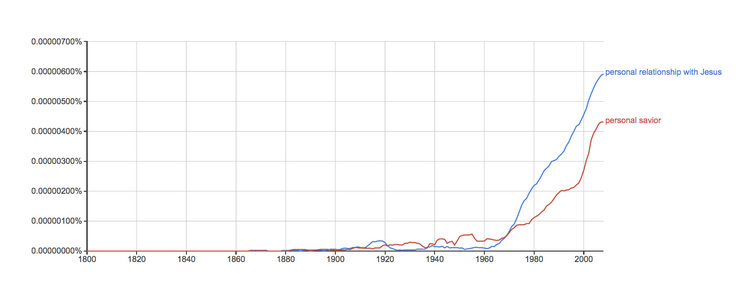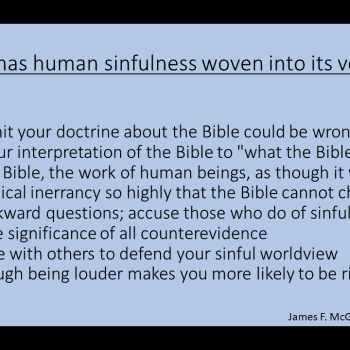I’ve been meaning for a while to share something that Samantha Field wrote on her blog, speaking about the Bible and how her view of it changed compared to the conservative approach that she grew up with. Here is a long excerpt:
It’s taken me a long time to really wrap my brain around the fact that I am just as removed from the culture, tradition, and ideologies that the writers of the New Testament were operating with as I am from the writers of the Old Testament. Heavens, the New Testament is almost two thousand years old. If we were reading anything else from the Middle East and the Roman Empire written around the same time, there would be all the glossaries and maps and lexicons all of the time. Instead, we would sit down with our translated-from-a-language-we-don’t-speak-by-people-thousands-of-years-removed-from-its-history and it didn’t phase us.
I’m not entirely sure why this happened, but I think it might have something to do with the fact that the New Testament is largely propositional statements and arguments. We get some of the richest, most meaningful stories in the entire Bible in the shape of the Gospels, but we rarely ever study them the way we go through Galatians or Revelation. Instead, those stories and parables are ignored in favor of what appear to be “plain English” statements about women being silent and forsaking not the assembling of ourselves together.
Over the last couple of years, I’ve come to view the Bible principally as story, and not in the sense that I think it’s fiction. In graduate school, I was in a lot of discussions about the meaning and power and beauty of “story,” and how we use narratives to shape our lives and help us understand our world. I don’t think the Bible is any exception. And, just like I would study any piece of literature, I try to understand time and place and culture and the possible experiences of the author (if we know who that is, which, shockingly (at least to me), we don’t for most of the NT books).
And, just like I would approach any other ancient text, I have to approach the New Testament with the respect that something so old deserves. I have to admit my almost complete and total ignorance regarding the environment it was written in, and admit that just because something is a propositional statement it doesn’t mean I have any clue whatsoever what it means– because I don’t really understand the motives he or she might have had for writing it that way, and who they were writing to, and what questions they were answering and what their relationship might have been like for their audience. I don’t even understand the language.
I think it would be a huge shift in American evangelical culture if they collectively admitted to this– that our understanding of the New Testament is crippled by the fact that we are so utterly removed from it.
Click through to read the rest. Ian Paul’s post on the Bible and critical study is of related interest on the same topic. And more recently, Richard Hagenston blogged about things that ministers avoid telling people about the Bible (my favorite is “Parts of the Bible Were Intentionally Written to Disagree with Other Parts of the Bible”), and Pete Enns wrote about three ways Jesus read and interpreted the Bible that Evangelicals are opposed to, and also shared ten things he wishes that everyone knew about the Bible. Scot McKnight highlighted how recent the focus on a “personal relationship” with Jesus is.













